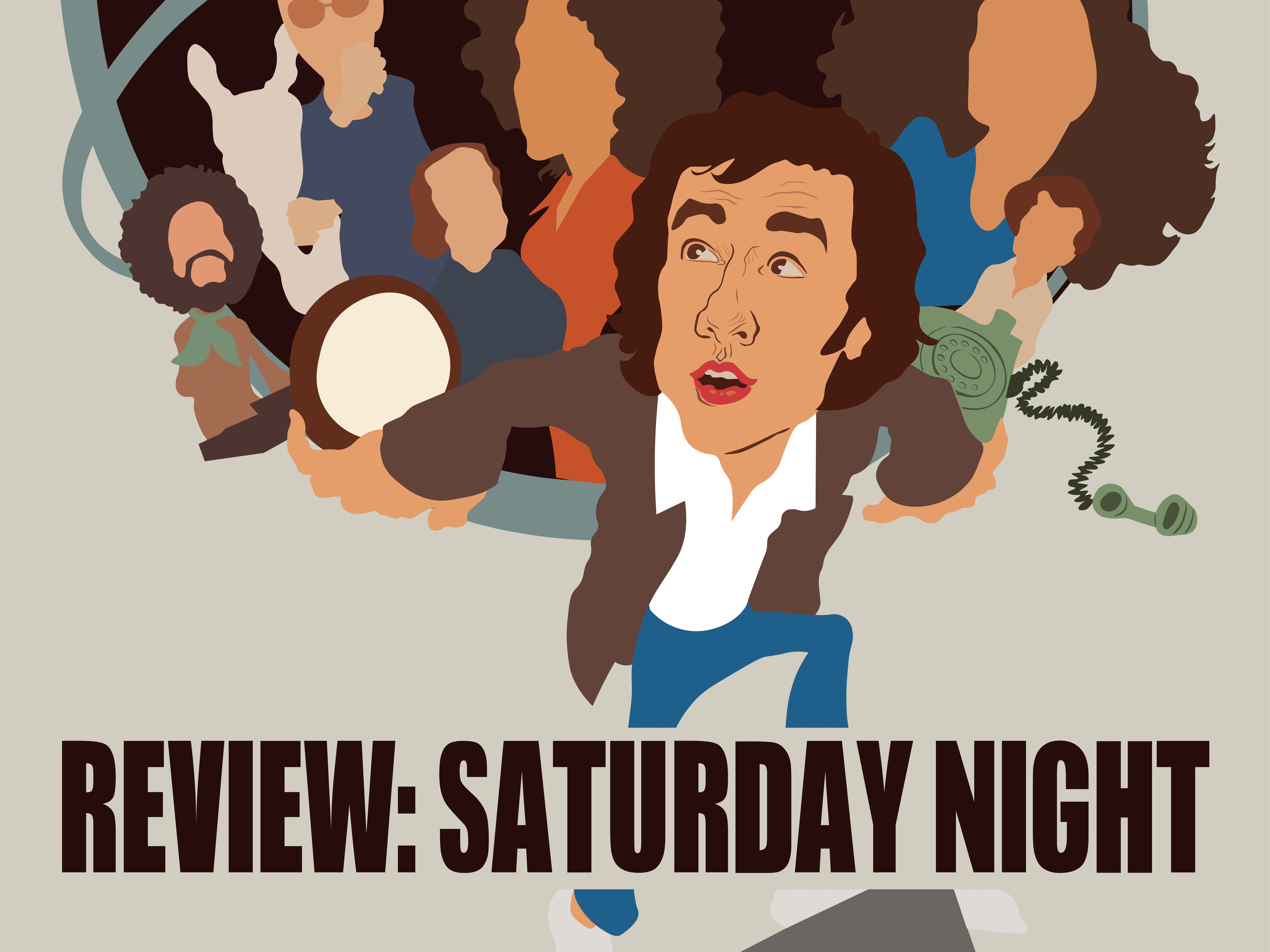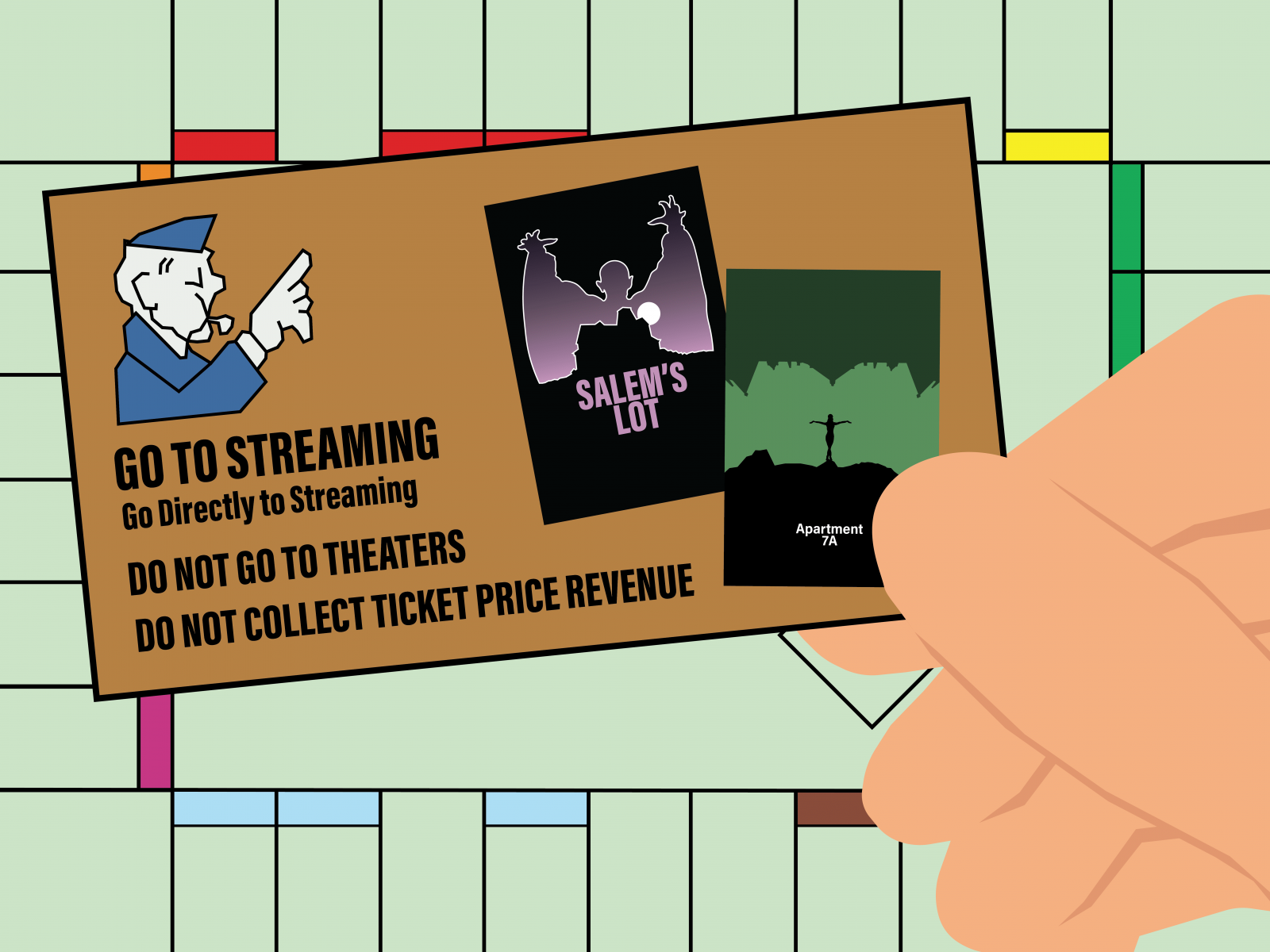Jason Reitman’s “Saturday Night” captures the chaotic 90 minutes leading up to the premiere of “Saturday Night Live” on Oct. 11, 1975. Though the film skillfully captures the atmosphere of the ‘70s with its 16mm style and talented cast, it ultimately fails to provide both the depth of the creation of the show and the intrigue of “SNL” original cast members.

Gabriel LaBelle delivers an incredible performance as Lorne Michaels and authentically portrays Michaels while avoiding the overdone Lorne impression. As the clock ticks closer to 11:30 p.m., Michaels works tirelessly to control his inexperienced cast, manage a reluctant crew and cut down the runtime, all while trying to please NBC executives who hold the future of the show in their hands.
The question: “Do you even know what the show is?” is posed many times throughout the film, and Micheals struggles to find the words to answer until the very end. It is clear that “Saturday Night” is supposed to be a youthful rebellion, but relies too much on telling the audience this rather than taking advantage of the vibrant personalities of the original cast members.
The cast and cinematography is almost good enough to cover up the blunders of Jason Reitman and Gil Kenan’s script, besides the whiplash-inducing abundance of whip-pans. Some of the characters are frustratingly undeveloped, though. Matt Wood’s John Belushi exclusively expresses one emotion throughout: annoyance, giving him no room to shine with the exception of his many scenes in a bee costume, one of “SNL”’s most iconic references.
The lack of depth for the leading “SNL” women was the largest missed opportunity. Ella Hunt does a great job depicting Gilda Radner, as does Emily Fairn as Laraine Newman, but they are given almost no screen time or material to work with. Jane Curtin as Kim Matula has even less to work with, though she does get a couple scenes to lament about being cast to play all the mom roles and jab at her previous career. Writer Rosie Shuster, portrayed by Rachel Sennott, is great as well and has chemistry with every character.
However, all of these women’s roles are reduced to setting up Dan Aykroyd, played by Dylan O’Brien, as charismatic. This was frustrating, considering the giant impact these women had on “SNL” and comedy.
Most of the skits that are included during rehearsals are surprisingly unfunny. However, Chevy Chase, played by Cory Michael Smith delivered a hilarious weekend update. He definitely is one of the more developed cast members and gives a great performance throughout. Lamorne Morris as Garrett Morris is a close second for most depth of the “SNL” cast members, as he questions his purpose on the show and why he was recruited in the first place.
The depictions of NBC executives are entertaining to watch, and are definitely some of the best scenes of the film. Willem Dafoe as David Tebet served as a great antagonist.
The score by Jon Batiste is phenomenal, and perfectly builds upon the tension. The musical impact of “SNL” and Lorne’s appreciation of music makes an appearance, with Batiste doing a great impression of Billy Preston. There’s also a touching and surprising song performance by Janis Ian, played by MUNA’s Naomi McPherson.
Tommy Dewey as head writer Michael O’Donoghue landed every joke and was a stand out. Additionally, Andrew Barth Feldman as Lorne’s nervous cousin/assistant gave a memorable performance and was a great casting decision. Nicholas Braun as both Jim Henson and Andy Kaufman was a little confusing, but he did a great job with his impeccable comedic timing, though Jim Henson acts more like a caricature than a real person.
The film leaves a lot to be desired, as it is also missing what went on in the writer’s room and the recruitment process. Instead of diving into the behind-the-scenes of sketches, we’re left with just glimpses. The audience is left to wonder what the process of Lorne Michaels getting “SNL” approved truly looked like.
The small hints and mentions at why NBC agreed to this show are not enough to satisfy. Key elements such as the creation of video shorts, “Weekend Update” and the decision to include celebrity hosts are notably absent, which leaves much of the show’s revolutionary essence unexplored.
It’s clear this movie focused more on a drama-filled portrayal than an accurate one. What could have been an “Ocean’s 11” type recruitment ends up feeling more like an “After Hours” one location nightmare, but with significantly fewer jokes. While this approach may satisfy viewers interested in seeing an entertaining depiction of 30 Rock in the ‘70s, those expecting a portrayal of the creation of “SNL” may leave feeling disappointed.























































































































